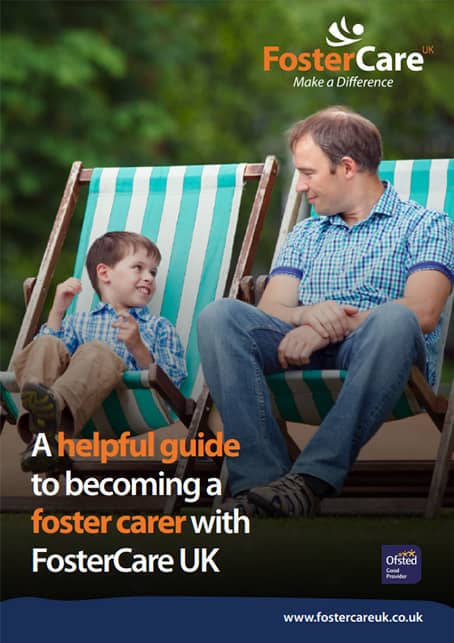


What happens when a child is taken into care?
Benefits of being a foster parent
What is a care leaver?
How to become a foster parent
How to foster a child
What are the foster care requirements
Can I choose who I foster?
Fostering with pets FAQ
How long does it take to become a foster parent?
What is the role of an independent fostering agency?
Fostering a disabled child
Tips for coping when foster placements end
Do foster carers pay tax?
What to expect in a fostering assessment
Common Fostering Challenges and Solutions
What disqualifies you from being a foster carer?
Muslim Fostering
Fostering as a single parent
Can you foster a child with a criminal record?
Can you work and foster?
Top 10 fostering myths
Can I foster if…?
Can I foster and rent?
LGBT Fostering: can I foster if I’m gay
Top transferable skills to become a foster carer
Can you foster with a mental health condition?
Christian Fostering
Sikh Fostering
Cultural Diversity in Foster Care
How to encourage foster children to read
Reasons for a child to be taken into care
Tips for coping with attachment disorders in Foster Children
Fostering vs Adoption
What happens when foster parents get divorced?
What is reunification in foster care?
How to deal with foster child bullying
A guide to the foster care handbook
Guide to fostering young children
Types of self-harm
A guide to fostering teenagers
What are the signs of depression in foster children?
Fostering a disabled child requires specialised care to children who have learning difficulties, physical disabilities, autism, or perhaps another medical condition. Whilst there may be extra things to consider when fostering a disabled child, there are often many misconceptions around disability fostering. For instance, you don’t need to have specialised qualifications or experience to foster a disabled child, despite common misconceptions. Find out everything you need to know in our guide today.
You do not have to have any previous experience with disabled children to consider a disability foster placement – here at FosterCare UK, we pride ourselves with offering specialised support 24/7. If you’re fostering a disabled child, you will have had training and support from our team, as you would for any non-disability foster placement. The biggest deciding factor for your application will be the suitability of your home and the interpersonal skills you possess.
You do not need to have any specialist qualifications or formal training to foster a disabled child. Your independent fostering agency will offer the training and skills you need. If you have had previous experience, this can be beneficial for the application process – but it’s not essential criterion for disability foster placements.
It is our responsibility to ensure that all our foster child’s needs are met – in the case of disability fostering, this often means that homes will have to be modified in order to facilitate your child. This might mean you may need to have a wheelchair ramp or perhaps specialist bathroom equipment fitted so that the child has maximum mobility and independence.
If you are already parenting a disabled child, you will have invaluable experience for a disability fostering placement. What’s important to consider is the impact fostering may have on your child - it’s important your child can adapt to having a new child around the house, and that your capacity for caring for both/multiple children is not overstretched.
Many children with autism are non-verbal – however, there are various ways in which you can communicate. Our agency will provide the specialist training in types of sign language, non-verbal cues, and other forms of communication you will need to know beforehand.
Your pet will not hinder your eligibility to foster a disabled child – however, your pet will need to undergo a risk assessment to see if they are a danger to children. This is routinely conducted on all foster application processes. Learn more about fostering children with pets.
We hope this FAQ has given you some insight into disability foster placements. If you would like to find out more about the specialist training we offer, do not hesitate to contact our team for more information today.
If you’ve got any questions or would like to find out more about fostering with Capstone, fill out the form below.
An experienced fostering advisor from your local area will then be in touch.

Start the conversation today. Our team of friendly advisors are on hand to answer any foster care questions you may have. We can offer you honest and practical advice that can help you decide if becoming a foster carer is the right path for you.


